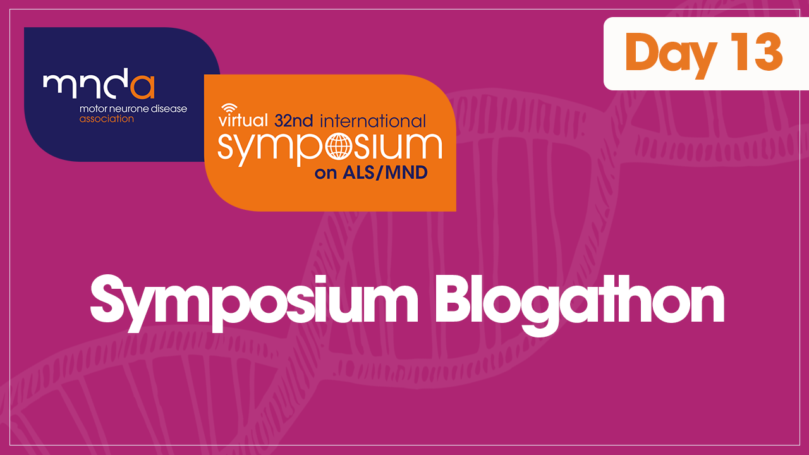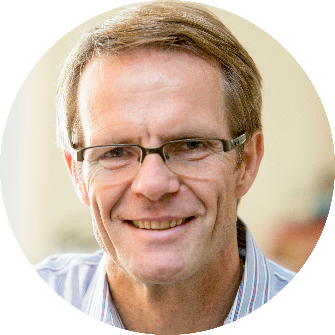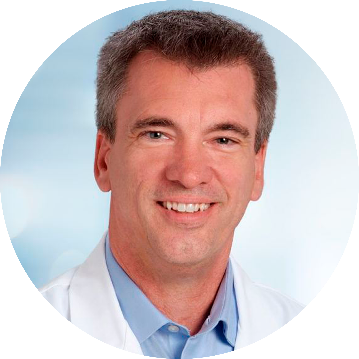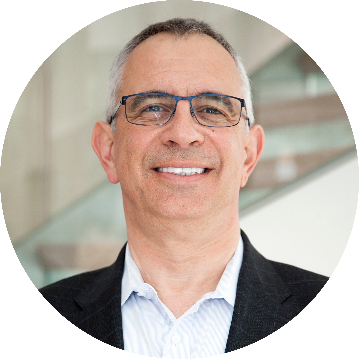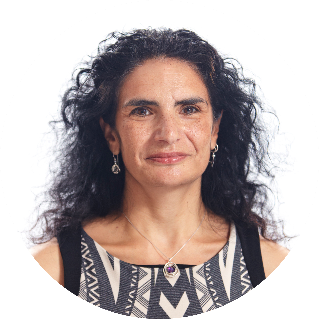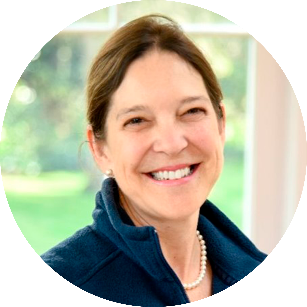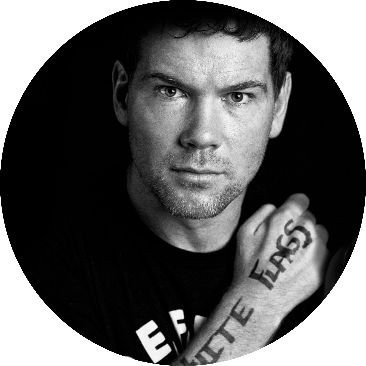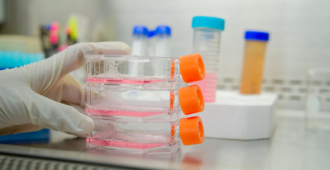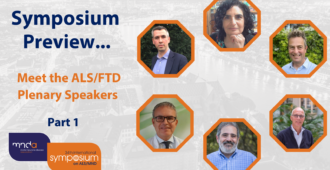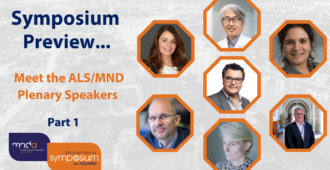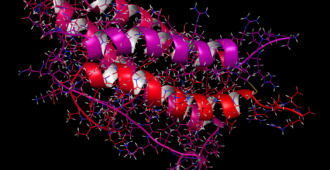This is blog number 13 in our ‘Symposium Blogathon’ – counting down to the 32nd International Symposium on ALS/MND. Numbers in bold green type correspond to the code in the abstract book. Click on the number to be redirected to the full abstract (the page may take a minute to load). You can also find out more about each speaker by clicking on their photo.
A highlight of every Symposium are the plenary speaker presentations. This year thirteen experts in MND research and clinical care will provide an overview of topics across the ALS/MND research and clinical management spectrum.
In this blog we will take a closer look at the plenary speakers who are presenting on days three and four of the Symposium, learn a little about them and explore the topics they will be covering.
Day 3, Session 6: Disease Models
Professor Lorenz Studer, Director of the Center for Stem Cells Biology at the Memorial Sloan Kettering Cancer Center in the USA, will explore ‘iPSCs as a model for neurodegeneration disease: myths and truths’ (C15).
Induced pluripotent stem cells, or iPSCs, are derived from skin or blood cells that have been reprogrammed and have the same wide potential as other types of stem cells. Dr Studer’s lab has established many of the techniques for turning human pluripotent stem cells into the diverse cell types of the nervous system and using them to model different human disorders. In his presentation, Prof Studer will provide an update on the technologies developed in his lab to address some of the key challenges that remain before the full potential of iPSC-technology in modelling and personalised medicine can be realised.
Day 3, Session 7: Translating Research from Bench to Bedside
Professor Jackie Hunter is a Board Director of BenevolentAI in the UK, a company that builds technology that helps scientists to explore interconnected disease networks to understand the complexities of biology to discover new and better treatments. She has over thirty years’ experience in the bioscience research sector.
The complex nature of MND and other neurological diseases has proved a formidable barrier to the translation of basic research into effective treatments. With a rapidly aging global population, the need to address this unmet medical need becomes ever more pressing. However, the increase in biomedical data and findings from research suggests that substantial progress is being made.
In her presentation ‘AI-augmented search for disease-modifying treatments: A new era in ALS drug discovery’ (C18), Prof Hunter will talk about how the application of artificial intelligence (AI) and machine learning is helping to enhance the understanding of human disease, therapeutic target identification and uncover more effective disease-modifying treatments for MND.
Professor Robert Bowser is the Chief Scientific Officer, Professor and Chair of Neurobiology at the Barrow Neurological Institute in the USA. MND biomarker research has been ongoing for over 30 years. A biomarker is a biological molecule found in blood and other body fluids and tissues that is a sign of a normal or abnormal process, condition, or disease.
Biomarkers may be used to see how well the body responds to a treatment for a disease or condition and are increasingly used as a measurable outcome in clinical trials. In his talk ‘How important are biomarkers in drug development?’ (C19), Prof Bowser will discuss the growing importance of biomarkers in drug development, preclinical testing and human clinical trials; their use to identify MND at a pre-symptomatic phase and to monitor disease progression. There is little doubt that biomarker research has greatly accelerated MND drug development and has been a key factor in the expanding pipeline of MND clinical trials during the past decade.
RELATED TOPIC
Blog | 17 June 2020 | Research Dev Team Identifying potential new diagnostic biomarkers in the blood
Dr Robenn Roubenoff is Global Head of Translational Medicine Discovery and Profiling at Novartis in Switzerland. He is an international authority on sarcopenia (a condition characterised by loss of skeletal muscle and function), translational medicine and the use of biomarkers in drug development.
Drug development in MND poses multiple challenges. Not only is the biology of MND complex, biomarkers that can track the effectiveness of new drugs are yet to be identified. Lengthy clinical studies are needed to demonstrate effectiveness and there is significant competition for clinical trial participants. These challenges require innovative solutions if drug development efforts for MND are to be successful. In his talk, ‘Innovative trial design considerations for ALS proof of concept and beyond’ (C20), Dr Roubenoff talks about developing an integrated approach to the development of new drugs, and how building relationships with MND patient groups and clinical consortia will ensure patient-centric clinical trial designs and study efficiency.
Day 4, Session 8: Cognitive Change
Around 50% of people with MND will experience some changes to the way they think and behave. Of these, 35% will experience only mild changes and 15% will develop frontotemporal dementia (FTD), which involves more complex cognitive and behavioural changes.
Professor Sharon Abrahams from the University of Edinburgh is a founding member of the Euan MacDonald Centre for Motor Neurone Disease Research. Her research focuses on cognitive, behavioural, psychiatric and cerebral changes in MND and neurodegenerative disease. She was part of the team that developed the Edinburgh Cognitive and Behavioural ALS Screen (ECAS) which is now routinely used worldwide and is incorporated as an outcome measure in clinical trials.
Her talk is about ‘Measuring cognitive change in ALS/MND’ (C21) and she will discuss how crucial it is that symptoms of cognitive impairment are measured based on the purpose of the assessment: clinic, research or clinical trials and the tools available. MND is a frontotemporal spectrum disorder that affects multiple systems and measurement has enabled understanding of changes within the brain and progression, the relationship between frontotemporal spectrum disorder and disease stage, differentiating between dementias, and has had an impact on clinical care.
Day 4, Session 9: Clinical Management
Professor Orla Hardiman is Head of the Academic Unit of Neurology at Trinity College Dublin and Consultant Neurologist at Beaumont Hospital. She leads a research group that focuses on deep phenotyping of MND and FTD. Prof Hardiman is also the Editor in Chief of the journal Amyotrophic Lateral Sclerosis and Frontotemporal Degeneration.
ALS is a rare disease, and diagnosis is currently made by exclusion of other conditions. The journey to diagnosis is often long and patient studies have shown that those with MND are seen by 3-5 healthcare professionals and have on average 4-5 investigations prior to definitive diagnosis. Early referral to a general neurologist may not reduce the time to diagnosis. Delayed diagnosis also means that many people with MND find they are not eligible to take part in clinical trials as they fall outside the ‘x number of months since symptom onset’ eligibility criteria by the time they have their diagnosis.
In her presentation ‘The diagnostic pathway in ALS: Can we do better?’ (C24), Prof Hardiman will talk about the challenges faced in improving diagnostic delay and how raising public awareness of MND and educating primary care practitioners may trigger early referrals to specialist clinics but may also increase the risk of ‘false positive’ presentations, limiting the availability of clinical care for people with definite diagnoses. She asks the question ‘How can we do better?’ and explores ways in which this might be achieved.
Day 4, Session 10: Closing Session
Dr Lucie Bruijn is Therapeutic Area Head for ALS at Novartis in Switzerland. She has worked in the neurodegenerative field for 28 years and established the first translational research programme for ALS – Translational Research Advancing Therapies for ALS (TREAT ALS) – while Chief Scientist at the ALS Association.
Through partnerships between academia, government and industry she established initiatives for drug development, clinical trials biomarkers, assistive technology, precision medicine, large-scale sequencing and analytics. These initiatives directly led to the development of antisense technologies for neurodegeneration and have contributed towards the tools required for industry to tackle the challenges of drug development for MND. In her talk she will discuss ‘Gene therapy: Prospects and pitfalls’ (C27). Recent approval for a drug to treat the childhood motor neuron disorder Spinal Muscular Atrophy (SMA), and the huge increase in companies committed to gene therapy development to rare and neurological disorders has elicited much excitement and anticipation for this therapeutic avenue for adult motor neurone diseases. While much has been learnt from the development of gene therapy for SMA, there are significant considerations when applying these to adult disease. The substantial investment into gene therapy development demands rigorous trial design and biomarker development, and a clinically meaningful endpoint is important for the approval of this therapy.
The final talk of this year’s Symposium is from Steve Gleason. Steve was diagnosed with MND in 2011 and, with his wife Michel, founded ‘Team Gleason’ to help him inspire others to thrive after diagnosis. He has since worked with global leaders in technology, passed two laws and received the Congressional Gold Medal, the highest civilian honour in the United States. Steve will talk about ‘Technology to empower living with ALS/MND’ (C28), and how technology can help give back some of what MND takes away.
Stay informed
If you have come across this blog through the Symposium website, or a general search please subscribe (see top right hand corner of page) and you’ll be notified every time we upload a new article.
You can follow our research account on Twitter. We tweet about up to the minute research and will be tweeting throughout the Symposium – #alsmndsymp #drivingmndresearch
Take a look at the schedule of blogs for November as we continue counting down to the 32nd International Symposium on ALS/MND with our ‘Symposium Blogathon’.
To listen to talks live, take part in the Q&As and visit the live poster sessions, register for the International Symposium now.

